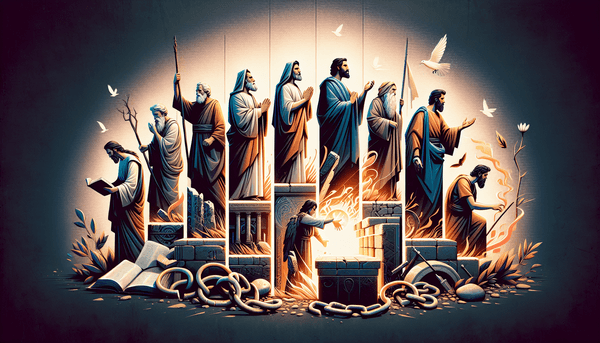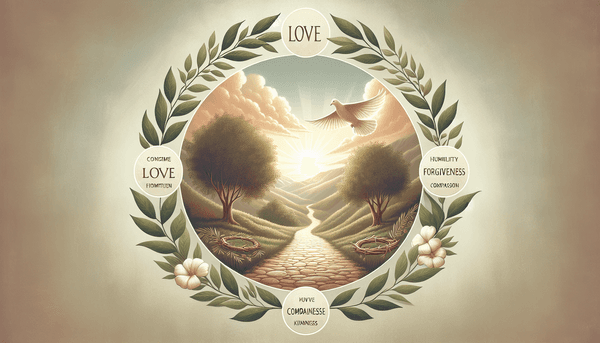Active Faith Demonstrated by Biblical Figures
The biblical narrative is rich with individuals whose lives are testaments to active faith. Take, for example, Noah, who built an ark in obedience to God's command, despite having never witnessed rain of the magnitude foretold (Genesis 6:22). His faith was not passive; he endured years of labor and likely mockery, yet he persisted in righteousness (Hebrews 11:7; Genesis 6:9). Similarly, Abraham, called the 'father of faith,' left his homeland without knowing his destination, trusting in God's promise (Genesis 12:1). His faith was later tested when he prepared to sacrifice his son Isaac, the very child through whom God's promises were to be fulfilled, yet he did not waver (Genesis 22:2; Romans 4:11). Moses, too, exemplified active faith; despite his initial reluctance, he trusted in God's power, led the Israelites out of Egypt, and guided them through perilous times with unwavering trust in God's promises (Exodus 14:21-22; Exodus 16:4; Exodus 7:5).
The Nature of Biblical Faith vs. Mere Belief
Faith in the biblical sense extends far beyond mere intellectual assent; it is an active trust and reliance on God, a force that compels us to action. Hebrews 11:1 defines faith as the assurance of things hoped for, the conviction of things not seen, while James 2:26 reminds us that faith without works is dead. This dynamic aspect of faith is evident when it leads to transformative actions (James 2:17), setting it apart from simple belief. Faith is not static; it is a living, breathing relationship with God that impacts our life choices and is credited as righteousness, as seen in the life of Abraham (Genesis 15:6; Colossians 1:10).
Consciousness After Death: 'Absent from the Body'
The Bible addresses the state of the soul after physical death, a topic of great significance and comfort for believers. Paul expresses a desire to depart and be with Christ, which is better by far (Philippians 1:23), and Jesus assures the thief on the cross that he will be with Him in paradise (Luke 23:43). These verses suggest an immediate presence with the Lord after death, often referred to as the 'intermediate state.' Even though the body dies, the soul remains conscious and awaits the final resurrection (2 Corinthians 5:8; 1 Peter 3:19). This assurance of salvation promises that believers will enjoy eternal fellowship with God (1 Thessalonians 4:14; Revelation 21:3). To further understand the dynamics of a Christ-centered life, which includes the hope of salvation, read our article on cultivating a Christ-centered life.
Resurrection of the Dead at the End of Times
The Bible prophesies a time when the dead in Christ will rise, transformed from mortal to immortal (1 Thessalonians 4:16; 1 Corinthians 15:53). This event, known as the rapture, will reunite believers with the Lord, catching them up to meet Him in the air (1 Thessalonians 4:17; 1 Corinthians 15:52). It signifies the ultimate victory over death, the last enemy to be defeated (1 Corinthians 15:26), and ushers in the promise of eternal life (John 11:25), where the perishable will clothe itself with the imperishable, and the mortal with immortality.
Conclusion
Our journey through the narratives and teachings of the Bible reveals a tapestry of faith and hope that spans from the extraordinary acts of obedience by figures like Noah, Abraham, and Moses to the profound mysteries of life after death. The active faith demonstrated by these individuals serves as a beacon, guiding us toward a deeper, more meaningful relationship with God. The assurance of salvation and the promise of resurrection offer solace and anticipation for what lies beyond this life. As we reflect on these themes, let us be inspired to live a life of active faith, anchored in the promises of God and the hope of eternal glory.






